Let’s be prepared!
Quebec community leader raises funds and awareness for infectious diseases
COVID-19 has dramatically affected how people in the province of Quebec are giving. According to a recent publication, although much of the event-based fundraising has been cancelled, funds raised by corporate donations, private foundations and individuals were massively redirected to organizations working on the frontlines. Meanwhile, forward-thinking and loyal donors have ramped up initiatives using their influence to inspire other community members.
“I experienced excellence in patient-centered care that one can only encounter at the Jewish General Hospital. The treatment quality is unparalleled,” said Quebec media owner and Chairman of the Board of RNC MEDIA Inc., Pierre R. Brosseau. Connected to the hospital through the late André Bureau, former CRTC chair and Astral Media president, Pierre was called upon to help support the hospital over a decade ago.
In 2014, Pierre created Le Festin de Babette, a JGH Foundation community partner event. His goal: to assemble key Quebec families and changemakers together in one room, to wine and dine, while raising funds for Alzheimer’s Disease research in Dr. Andréa C. LeBlanc’s laboratory at the Lady Davis Institute. “My father passed away from Alzheimer’s disease, and I am sensitive to the cause because I am a good candidate for this illness.”
Donating nearly $3 million in personal and Brosseau Family Foundation gifts, Pierre was delighted by the success of the event and decided to change the focus of his philanthropic efforts for the next 5 editions of Le Festin de Babette in 2019, the year before the pandemic hit. “After meeting with Dr. Karl Weiss, the Chief of Infectious Diseases at the JGH, I was sold and decided the benefitting department would be his until 2023. It was harder then to get people interested in supporting the Centre for Infectious Diseases initially, but we still managed to raise $400,000.”
In the spring of 2020, with the coronavirus impacting each and every one of us, donations to combat this deadly virus, among other infectious diseases, suddenly became very necessary and relevant. “People began to recognize the importance of investing in research to fight infectious diseases. The Honorable Denis Coderre, who also happens to be the JGH Foundation’s Ambassador, decided to join me in raising funds and awareness for the newly formed The Centre of Excellence in Infectious Diseases at the JGH, headed up by Dr. Weiss. Together with the Foundation, we are working on a campaign to raise $7.5 million through our combined connections. Following the initial solicitation of major donors, the general public will be solicited through television and radio networks across Quebec at the end of February 2021.”
The Centre of Excellence in Infectious Diseases will be home to 7 new microbiologists, who will devote themselves to the discovery of novel means to prevent antibiotic resistance, as well as research into other viral and infectious diseases. We must be ready for what comes next. We have seen first-hand the impact of COVID-19 on our society, our health, our way of life. It is only through cutting-edge research – the kind that happens at the JGH – that we will be able to meet the next microbial foe head-on.
“I have been privileged in my life to be able to give back, and I hope to impart that same desire onto my children. If we have it in our wallets and our hearts, we should do what we can to leave this world a better place. It is just the way I see things at this point in my life.”
February 2021
View More
K.I.D.S. Supporting Kids
Daycare vernissage raises funds for Mental Health at the JGH
Over the last decade, many have recognized the importance of good mental health in adults, but some are still learning about its significance in the lives of children. At least 70 percent of mental health problems have their onset during childhood and adolescence.
“We have seen children here at the daycare who are dealing with grief related to the loss of a loved one or a parent who was sick. It’s especially challenging for some of them this year in dealing with COVID-19. It is definitely affecting them,” said Susan Lottner, the Coordinator at K.I.D.S. Daycare – Technoparc Montreal. “Children from the daycare do benefit greatly from behavioural management programs. We had one child in particular who benefited greatly from the JGH’s program.”
For the last two years, the children at K.I.D.S. Daycare – Technoparc Montreal and their families have been fundraising to support The Centre for Child Development and Mental Health at the Jewish General Hospital. Raising over $1,600 this year, the children between the ages of one and five-years-old held an outdoor art vernissage for their parents.
“We have a program here called the Art Appreciation Program at the daycare. Basically, the children learn about a different artist every month, and then they use different techniques and art media to create art – whether it’s finger painting, collage, brush painting, etc. It all culminates into this vernissage and we thought why not support the JGH which is supporting the children from the daycare? It’s children supporting children,” Susan shared enthusiastically.
Providing programs and services to children between the ages of 3 and 12 years of age since 1966, The Child Psychiatry Department of the Jewish General Hospital consists of several interdisciplinary teams. These include the Early Childhood Disorders program, the Day Treatment program and the Out-Patient/Evening Hospital program.
The donation from K.I.D.S. was received through the Mindstrong Fitness Event which supported the complete rebuilding of the new Carole and Andrew Harper Psychiatry Inpatient Unit at the JGH. The inpatient unit has grown from 16,000 sq ft to over 27,000 sq ft., including a designated geriatric section and large occupational therapy room.
Last updated January 2021
View More
Volunteering To Make A Difference
Volunteers play an important role at the JGH Foundation. They make a difference by purchasing much needed equipment, improving the physical premises of the hospital, and supporting programs and events with their energy, enthusiasm and good will.
Diane is one of those extraordinary people. Raising funds and supporting departments at the JGH for over a decade, she started her own charity called Vision of Hope in 2008 after her husband passed away from cancer.
“My husband was very healthy. He was a runner. He was in good shape. It was very quick. We were in shock,” Diane described. “But, I was so thankful for the medical staff at the JGH on the oncology ward who tried to do everything they could to save his life.”
By his bedside, in Pavillion D on the 7th floor, Diane slept on a stretcher on and off for over a year. She decided she wanted to make the experience more comfortable for future family members of JGH patients.
“With the help of amazing friends and family, we did a winemaker's dinner and we raised over $700,000. This enabled the cancer ward at the JGH to buy new furniture,” said Diane.
Most recently, Diane partnered with Gildan and Mitchel Kendall in order to distribute 1,500 sweaters to oncology patients receiving chemotherapy. She also delivered 750 care packages to the geriatric unit thanks to Avon Canada, BethCare Senior Services, Colgate/Palmolive and Maximage.
“Karine Lepage who was formerly head nurse of the oncology department, which I donated to over the years, had switched to geriatrics and reached out to me for help. So, I jumped right in to do my part and the response I got from the community was overwhelming. I mean, people were just so kind and generous,” Diane added.
Making a difference in the lives of hundreds if not thousands of JGH patients and staff, The Foundation is proud and humbled by Diane’s efforts.
“Diane embraces everything we look for in a volunteer and supporter of the Hospital & its Foundation,” said Stephanie Roza, Manager of Volunteer Engagement at The JGH Foundation. “We are truly grateful to her for her time, her generosity and for leveraging her network and resources so that she could help bring comfort and joy to patients and staff.”
November 2020, last updated January 2021
View More
Stay Safe Little One
Children’s book promotes positivity and caution while paying it forward
When the pandemic first hit in March of this year, Claudia Amato and her family consumed a lot of news related to the novel coronavirus. And they weren't alone. Reports suggest that media consumption has broken historical records in North America. "The fact that we were watching everything in the beginning, the kids were getting bombarded by very scary statistics in the news. They were asking me constantly, 'Mom – what are the numbers today?' And I would tell them, and they'd say 'Oh – that's bad, that's bad!'" Claudia said.
To quell their fears, Claudia decided to write a story about a big virus and the many little warriors who must face it. "The first idea behind the book was to teach the children about being safe and washing their hands and so on," she added. "The second was to give them hope."
Then one night, her husband noticed what she had been writing and told Claudia he believed other children would benefit from it. "The story helped counteract all the messages we were seeing because it was very much focused on the present and not looking too far ahead into the future – that things will be better again."
Fast forward just a couple of months, and almost 700 copies of the book Stay Safe Little One have been sold. Alongside friend and illustrator Jennifer Nozzolillo, Claudia decided to donate all of the profits to the JGH Foundation's COVID-19 Relief Fund. Close to $1,800 has been donated so far, and Claudia couldn't be prouder.
“The community was just so supportive. Without it, none of this would have been possible,” she shared enthusiastically. “We hope this action will encourage others to donate and to actively be a part of fighting the virus in the real world at the JGH.”
The JGH was the first hospital in Montreal to treat adult patients with the coronavirus. Their efforts fueled necessary research, like Dr. Brent Richardson’s biobank, which made predicting optimal treatment for COVID-positive patients possible and telehealth programs like ESOGER1, an online tool that evaluates the socio-geriatric situation of a specific elderly individual.
“I think we have to be a little more patient than we want to be, but be that as it may, we are here now, and hopefully, an end is in sight.”
December 2020, last updated January 2021
View More
ANNUAL GENERAL MEETING 2021
Thank you for registering for the Jewish General Hospital and its Foundation's joint 2021 ANNUAL GENERAL MEETING which will take place on Tuesday, October 5, 2020, at 5:00 pm
Below are the documents. Please right click to save each document.
View More
Q &A WITH DOCTOR BASIK
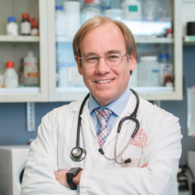
Today is the last day of Breast Cancer Awareness Month. Every year October is an important month for all those who are working hard to eradicate breast cancer. This year we also needed to deal with COVID-19. Since the beginning of the pandemic, we've all had to change how we go about our day-to-day.
And yet, the coronavirus threat is all the more destabilizing for those living with breast cancer and compromised immune systems. Just about every aspect of their life is affected, including screening, diagnosis, treatment, follow up care as well as the potentially life-saving research medical professionals can practice.
Why is research vital in fighting this chronic illness now more than ever? Researcher at the Lady Davis Institute and Assistant Professor, Department of Surgery and Oncology at McGill University, Dr. Mark Basik, explains.
Q: WHAT ARE THE IMPACTS OF COVID-19 ON BREAST CANCER PATIENTS? HOW DO THE CORONAVIRUS SYMPTOMS AFFECT THEM?
Dr. Mark Basik: Cancer patients treated with chemotherapy are at higher risk of not doing well if they catch COVID-19. Their treatments weaken the immune system rendering it challenging to fight off the virus. Moreover, cancer patients may have symptoms similar to that of COVID-19 (e.g. cough), making it difficult for medical staff to tell if it is cancer or COVID-19-related symptoms.
Q: WHAT HAS BEEN THE IMPACT OF COVID-19 ON BREAST CANCER RESEARCH?
Dr. Mark Basik: There has been a delay in our lab experiments because the research institute was shut down for three months. All experiments were put on hold for that period. There is also a delay in our clinical projects as we could not recruit patients for our studies (like new drug testing, the development of new blood tests, etc.).
Q: HOW ARE WE CONTINUING TO RESEARCH BREAST CANCER TREATMENT DURING THIS QUARANTINE PERIOD?
Dr. Mark Basik: We worked on expanding our studies to other hospitals, opening up the possibility of recruiting patients in Ontario to our projects. We could not test any of the new drugs for breast cancer for about three months in the clinic. We started only with those with minimal risk for COVID-19 (e.g. avoiding potentially harmful experimental drugs). We can now recruit patients for our studies: discuss the study with them and ask the patients to consent by phone, which was not possible before.
Q: WHAT ARE THE MOST RECENT ADVANCEMENTS YOU HAVE MADE IN 2020 IN YOUR RESEARCH?
Dr. Mark Basik: We have data suggesting a new treatment for a type of aggressive breast cancer. We found that not finding the DNA from tumours in the blood before surgery may mean that the tumour is less likely to come back. It might mean less chemotherapy for the patient. We are confirming these findings in new patients.
Q: WITH EVERYTHING HAPPENING IN 2020, WHAT ARE THE MOST PRESSING RESEARCH NEEDS?
Dr. Mark Basik: The needs are the same as always: find better treatments for aggressive breast cancers, especially metastatic breast cancers, find better ways to target treatments so that patients get the right treatment catered to their cancer type.
Q: HOW WILL THE DONATIONS BE USED FOR YOUR RESEARCH?
Dr. Mark Basik: To help us continue discovering and testing new treatments, new treatment combinations in aggressive breast cancers using our models generated from patients' tumours.
As we wrap up the end of Breast Cancer Awareness Month in October, now more than ever before, we need your generous donation to ensure that Dr. Basik can continue his critical research into innovative treatments.
View More
Save Generations of Breast Cancer Patients’ Lives.
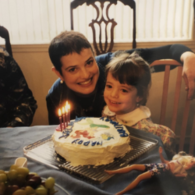
Research leads to advances in care. Researchers, like our very own Dr. Basik, are continuously working to advance our understanding of how to prevent, detect, and treat breast cancer.
Although one in eight women will be diagnosed with breast cancer in their lifetime, about 5 to 10 percent of those breast cancers are thought to be hereditary, caused by mutated genes passed from parent to child. Treatment emerges thanks to research!
"In September 1997, I was diagnosed with breast cancer," said Romy. "Five months later, I was told that I was a BReast CAncer gene one (BRCA-1) positive."
Many inherited breast cancer cases are associated with two gene mutations: BRCA1 and BRCA2. Women who have either mutation (or both) can have up to a 72 percent chance of being diagnosed with breast cancer during their lifetime.
"My kids grew up knowing that I had breast cancer but as kids, I never told them about the fact that I had the BRCA1 gene and that it could have been passed down to them," said Romy. "We had a history of cancer in the family and I didn't want them to be scared of cancer or grow up living in fear of dying from it like so many people do."
The subject of a study in the nineties at the JGH which determined Ashkenazi Jewish women were substantially more likely to have a genetic mutation linked to breast cancer, Romy decided to let her daughter Kelsey know what may lie ahead for her when she turned 18.
Twenty years after Romy was diagnosed with breast cancer, Kelsey decided to get tested for the gene mutation as well.
"My story became our story, one that we started to navigate together," said Romy.
Kelsey tested positive for BCRA1 in 2017, and in 2019, she received more bad news.
"I was diagnosed with triple-negative breast cancer about six months before my 25th birthday," Romy's daughter Kelsey said.
As if being diagnosed with cancer at such a young age wasn't enough, Kelsey endured treatment and surgery at the JGH during the peak of the first wave of COVID-19.
"It was definitely strange and at-times lonely but I always felt safe upon entering the Jewish even though it was a designated Covid-19 treatment centre," Kelsey said confidently. "I trusted my doctors, nurses and the whole team at the JGH to take care of me and to make the right decisions."
Romy is also thankful to the JGH for similar reasons.
"Had I not been a part of the study for BCRA1, I would never have known I had a gene mutation. This knowledge has the potential to save generations of my family," she said. "There isn't a single hospital where teams work together like they do at the Jewish. My experience there was life-altering and I am so grateful for the staff there."
Kelsey and Romy are now cancer-free and both expressed the need for more research and resources for women of all ages living with cancer.
"It's not one-size-fits-all for treatment," Kelsey added. "There are so many different breast cancers and we have to be able to treat people on an individual level. We still have so much to learn about metastatic breast cancer for example. We don't talk enough about it as a treatable disease."
Supporting research like Dr. Basik's is vital. Together, we can make this happen. By giving to Dr. Basik's research today and you will help saving generations of patients' lives.
We are asking you to support Dr. Basik's research as we strive towards conquering cancer in our lifetime.
View More
SPREADING KINDNESS TO JGH PATIENTS AND BEYOND.
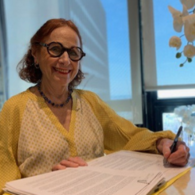
Not all acts of kindness are random.
Sometimes, they take decades of work from very dedicated individuals to come together.
"Initially, my husband was a patient at the hospital. He had gone into the JGH for spinal surgery. He ended up having to get a 6-7 hour operation. In thanks, we asked his neurologist if he had a wish list, and that we'd like to help. He said: 'what we need is a stroke unit where patients who are admitted to the hospital through emergency can be diagnosed quickly and could bypass all the other levels'. So, we went to work," shared Rona Davis. "My husband and I co-chaired this fundraising initiative, and we raised funds necessary to start up a stroke unit."
For over twenty years, Rona has been spreading kindness at the JGH through her efforts at the JGH Foundation.
One of her latest and greatest projects came to life in 2014 when Danyael Cantor, Director, Development at the Foundation, and Maxine Lithwick, Director of Social Services at the JGH, approached Rona with a concept that originated in the United States called the Hospital Elder Life Program (HELP).
"The impetus for accepting to chair this program came from my late mother, who, prior to her death at age 102, had been hospitalized on several occasions, where she had experienced temporary dementia. It's too bad a program like this did not exist when she required it," Rona admitted.
Operating three shifts per day seven days a week--including mornings, afternoons and evenings—HELP is an innovative approach that uses dedicated volunteers to improve care for elderly patients in a hospital setting. The donor-funded program ensures the best care possible for inpatient stays and facilitates their transition from hospital to home.
HELP's goal is to assist seniors and help them maintain their functionality and prevent delirium during hospitalization through a series of exercises and activities customized to meet their particular needs. The program relies on trained volunteers to provide five types of interventions--to stimulate mental, physical and social well-being: daily orientation, basic active exercises, meal assistance, recreational activities, and sleeping protocol.
Thanks to various supporters, connections and contacts, along with the guidance of Dr. Ruby Friedman, Director of Geriatrics at the JGH and his very dedicated team of hospital staff, Rona assisted in getting HELP up and running, even winning HELP an award from Caisse Desjardins in 2019, which saw it named one of the 10 best projects in humane care.
"The goal of this project is to be in every unit of the JGH," Rona added. "It's been everyone's goal!"
When the pandemic hit, HELP was active in 5 hospital units.
Now, TeleHELP, a digital resource and e-version of the in-person initiative is expected to be available to at-home patients in the coming weeks.
"In 2019, we established an educational partnership with McGill University's School of Occupational and Physical Therapy. This summer, we had occupational therapy students researching our project but due to COVID-19 the 2019-2020 school year was discontinued for courses and on-site training at the JGH and they couldn't finish their year's course curriculum. The installing of TeleHELP addresses 2 issues: primarily as outreach to at-home former HELP patients while, secondarily, assisting last year's students in completing their curriculum," Rona added.
One can easily see that the level of kindness Rona has brought to the table is unparalleled. She wants others to know that a common thread of kindness can bind us.
"The world is much greater than ourselves--there's such a feeling of completeness that comes from helping others, especially with COVID-19, where we are alone a lot. It's easy to become self-absorbed. As a volunteer and helping others, one receives much more than what one gives. It's wonderful, and it expands your horizons, and it always teaches you new things. There's so much you can get out of it."
View More
GIVING THE GIFT OF GRATITUDE TO OUR HOSPITAL HEROES.
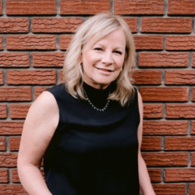
Philanthropy is defined as an act or gift done or made for humanitarian purposes.
Philanthropy is also synonymous with public spirit, selflessness and goodwill—three character traits one could use to describe Brenda Rosenberg.
"She above all donated her precious time and support to the hospital staff during the most trying period of 2020, when COVID-19 hit us and changed our lives significantly. We cannot thank her enough for what she has done," said Chief of Emergency Services, Dr. Marc Afilalo.
A member of the Foundation's board of directors since 2015, Brenda sprang into action when the JGH got called into battle during the first wave of the coronavirus pandemic.
"I wanted to be a part of something special and to give back to my community," Brenda shared.
The first health institution in Montreal to treat adult coronavirus patients, the JGH saw steadfast support from donors, board and staff members, as well as our neighbours and community-at-large.
Thus, The Hero Project was born.
Sustained and coordinated by the JGH Foundation and led by JGHF Board Members Brenda Rosenberg and Bita Cattelan, The Hero Project helped fuel doctors, nurses and support staff at the Jewish General Hospital by providing meals, fruits and snacks to these invaluable front-line staff who collectively worked around the clock to keep our community safe.
"What was great about The Hero Project was that you donated funds to feed healthcare workers, and then we supported local restaurants by ordering their food with those funds. People were doing what they could to be heroes at home, and we were able to feed healthcare workers and support local businesses," Brenda said proudly. "It was a win-win-win for everyone!"
The Hero Project raised over $100,000 and served over 27,000 meals and snacks to Hospital Heroes during the peak of the first wave.
"I believe this initiative sets an example for the future in that people need to take some time, more time, to thank healthcare workers. I think it sets a tone for this being an everlasting project so that people can continue to appreciate and show gratitude to hospital staff, and not only in a time of crisis."
Recognizing it takes a village, Brenda doesn't miss a beat when it comes to thanking those that helped her make this possible.
"There were so many people, so many valuable people who helped make this possible. Valerie Manouk, Director of Annual Giving, was essential in getting this project off the ground and keeping it afloat. I don't know what I would have done without her or countless others. I feel truly grateful for the whole experience."
View More
CONNECTING CARE TO TEENS DURING COVID-19
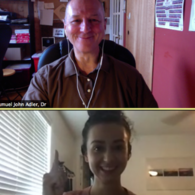
"Staff at the Teenage Health Unit were always welcoming and in a good mood. They helped show me that there was a reason for my mental illness and that I could fight the monsters in my head."
High praise for Dr. Perry Adler, Director of The Teenage Health Unit at the JGH, and his team is not uncommon.
"Our clinical professionals teach teenage patients the skills to better manage their emotions and to use more adaptive coping techniques to navigate the travails of life," said Dr. Adler.
For 35 years, the donor-funded centre has given comprehensive primary care to patients between the ages of 13 and 19.
"I was heading down a slippery slope of self-harm, toxic relationships and substance abuse," a young patient, who wished to remain anonymous, shared. "My weekly meetings helped me not lose sight of the end goal, to have a happy and healthy lifestyle with people who support me and who I can support, too. They never let me get away with not taking this seriously enough and they wouldn't let me give up on myself."
According to Dr. Adler, the Foundation's consistent efforts have undoubtedly enhanced the Teenage Health Unit's ability.
Now, thanks to donor funds, the Teenage Health Unit at the Goldman Herzl Family Practice Centre is offering free virtual group therapy sessions via Zoom to teenagers who would benefit from psychosocial help during the pandemic.
Connecting youth to care like never before. You have that power.
To sign up for the sessions or to learn more – click here.
View More






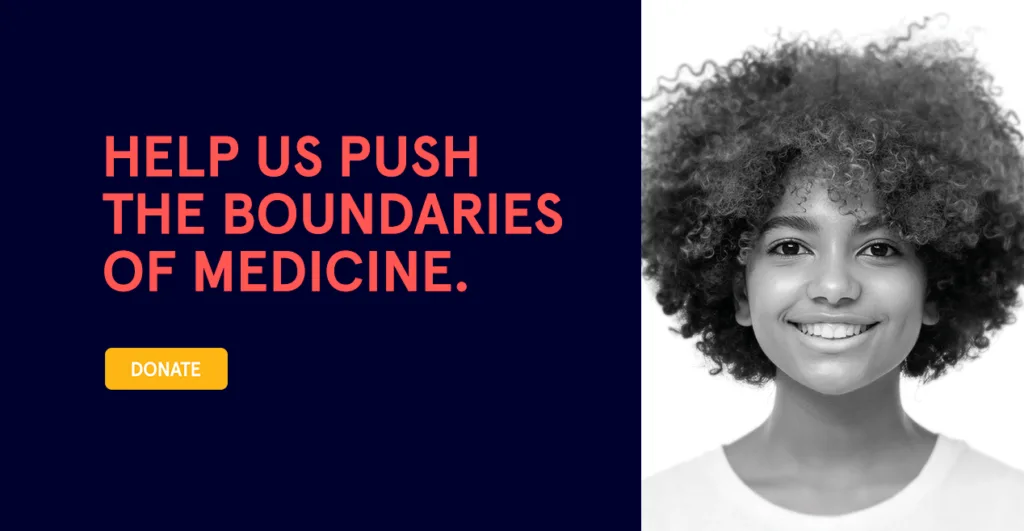
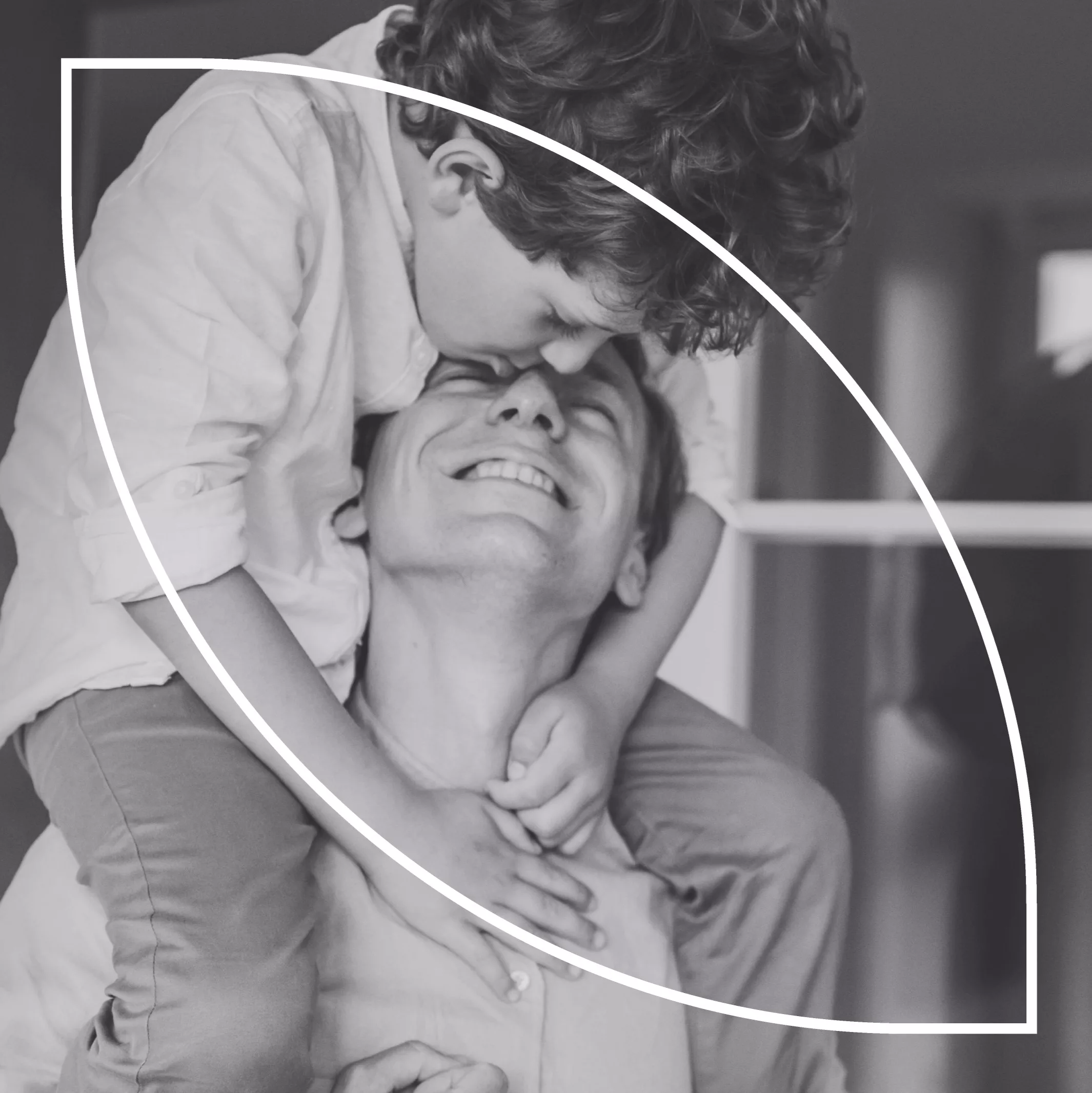 Donors are transforming healthcare at the JGH. We’ll show you how.
Donors are transforming healthcare at the JGH. We’ll show you how.